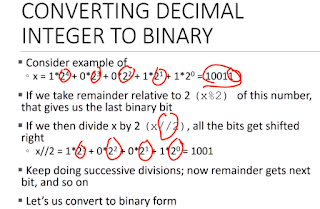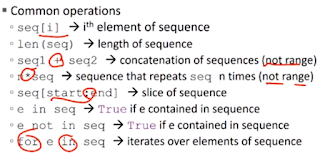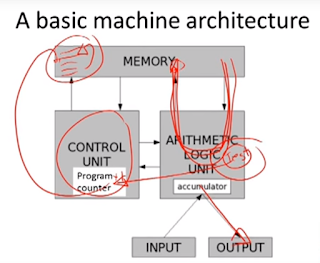6.00.1x - Week 2
2.3.1 Simple Algorithms
slice string using: start:stop:step
s[::-1] reverse the string
string is immutable
2 ways to write for loop: "for char in s" "for index in range(len(s))"
2.3.2 Approximate Solutions
Exhaustive enumeration
start with initial guess
step: any small number, takes many steps
2.3.3 Bisection Search
takes log time to get an answer
works well with problem with "ordering" property: value increases as input increases
print("Hi", end=' ')
print("there") will print "Hi there"
2.3.4 Floats and Fractions
This is why sometimes we get weird result because in binary you can get close to it, but not exact
Should not use == to compare float, instead use abs(a-b) < epsilon
2.3.5 Newton-Raphson Algorithm
Approximation algorithm to find roots of a polynomial: g -> g - p(g)/p'(g)
Even better than Bisection search
slice string using: start:stop:step
s[::-1] reverse the string
string is immutable
2 ways to write for loop: "for char in s" "for index in range(len(s))"
2.3.2 Approximate Solutions
Exhaustive enumeration
start with initial guess
step: any small number, takes many steps
2.3.3 Bisection Search
takes log time to get an answer
works well with problem with "ordering" property: value increases as input increases
print("Hi", end=' ')
print("there") will print "Hi there"
2.3.4 Floats and Fractions
This is why sometimes we get weird result because in binary you can get close to it, but not exact
Should not use == to compare float, instead use abs(a-b) < epsilon
2.3.5 Newton-Raphson Algorithm
Approximation algorithm to find roots of a polynomial: g -> g - p(g)/p'(g)
Even better than Bisection search



Comments
Post a Comment